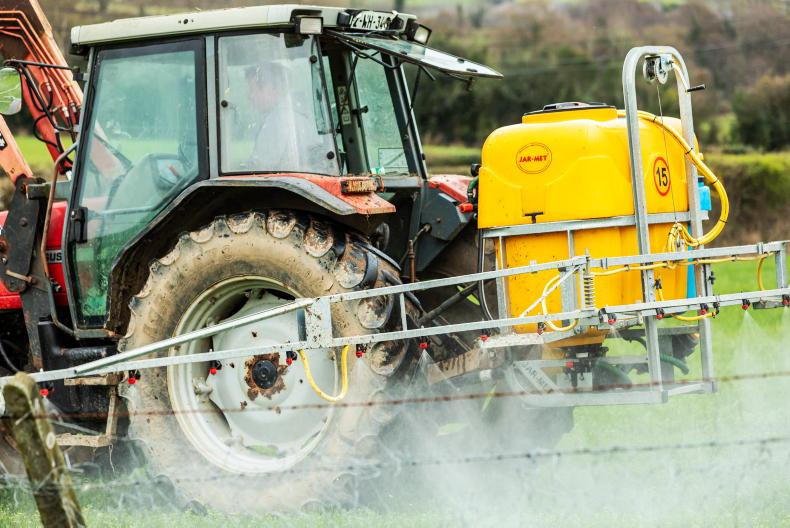A three-year European Food Safety Authority (EFSA) review of glyphosate has concluded that the herbicide poses no critical areas of concern to the health of humans, animals or the environment.
The conclusion puts glyphosate’s place in EU farmers’ toolbox in a far safer position than it had been in recent years.
These concerns must be ruled out by the agency to allow chemicals to gain the EU regulatory green light for the renewing sale licenses.
The European Commission is legally obliged to take account of the conclusion adopted by EFSA, meaning that herbicide has passed a key potential stumbling block on the road to gaining permissions needed to remain on the market in the EU.
Glyphosate’s EU license had been due to expire on 15 December 2022, but a license extension was granted out on 15 December 2023.
Peer reviewed
The new EFSA evaluation is peer reviewed and based on “many thousands of studies and scientific articles” on the chemical.
EFSA’s review concluded that glyphosate’s interaction with biodiversity is “complex and depends on multiple factors”, but that mitigation measures could be put in place by users to prevent the chemical harming wildlife.
Potential issues that remain to be finalised include assessing impurities in glyphosate, a consumer dietary risk assessment and an assessment of the risks it could pose to aquatic plants.
Place in toolbox
Glyphosate is the most common herbicide used in Ireland, EU-wide and across the world.
Some 60% of the glyphosate used by Irish farmers is sprayed on grassland and the chemical remains an important tool for controlling grass weeds in tillage systems.
Last year, the European Chemicals Agency (ECHA) found that glyphosate was not carcinogenic after it carried out a risk assessment on the herbicide.
Read more
Glyphosate registration up in December 2022
Commission publishes gene-editing proposals and draft soil health law
Pesticide price shock for embattled grain growers
A three-year European Food Safety Authority (EFSA) review of glyphosate has concluded that the herbicide poses no critical areas of concern to the health of humans, animals or the environment.
The conclusion puts glyphosate’s place in EU farmers’ toolbox in a far safer position than it had been in recent years.
These concerns must be ruled out by the agency to allow chemicals to gain the EU regulatory green light for the renewing sale licenses.
The European Commission is legally obliged to take account of the conclusion adopted by EFSA, meaning that herbicide has passed a key potential stumbling block on the road to gaining permissions needed to remain on the market in the EU.
Glyphosate’s EU license had been due to expire on 15 December 2022, but a license extension was granted out on 15 December 2023.
Peer reviewed
The new EFSA evaluation is peer reviewed and based on “many thousands of studies and scientific articles” on the chemical.
EFSA’s review concluded that glyphosate’s interaction with biodiversity is “complex and depends on multiple factors”, but that mitigation measures could be put in place by users to prevent the chemical harming wildlife.
Potential issues that remain to be finalised include assessing impurities in glyphosate, a consumer dietary risk assessment and an assessment of the risks it could pose to aquatic plants.
Place in toolbox
Glyphosate is the most common herbicide used in Ireland, EU-wide and across the world.
Some 60% of the glyphosate used by Irish farmers is sprayed on grassland and the chemical remains an important tool for controlling grass weeds in tillage systems.
Last year, the European Chemicals Agency (ECHA) found that glyphosate was not carcinogenic after it carried out a risk assessment on the herbicide.
Read more
Glyphosate registration up in December 2022
Commission publishes gene-editing proposals and draft soil health law
Pesticide price shock for embattled grain growers






 This is a subscriber-only article
This is a subscriber-only article









SHARING OPTIONS: